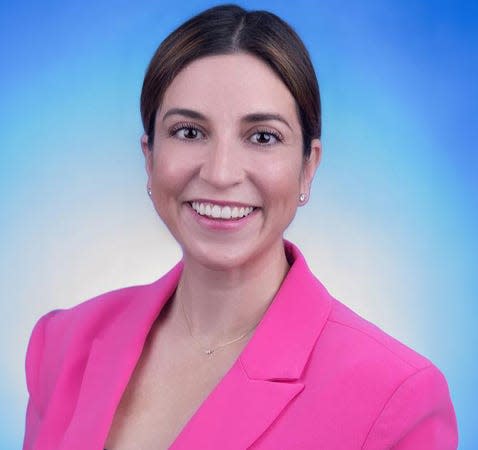We need to put tech to work to battle back climate change
In 1992, following the most destructive hurricane in our region’s history, South Florida took historic steps to limit catastrophic damage from any future storm. As a result of the bold action we took in the aftermath of the crisis, our building codes are the strongest in the nation and have become the global standard for protecting structures from destructive winds; our largest companies took action to lower emissions and upskill workers; and our unions and schools started training our students and workers to deploy new adaptation and mitigation technologies developed in South Florida.
Now, as we face the mounting threats of more frequent and intense weather events, extreme heat and more, South Florida is poised once again to continue leading the nation in climate readiness and innovation for the generation ahead. Our region was recently named by the U.S. Economic Development Administration as one of 31 tech hubs across the U.S. and the only one focused on climate technology. This designation centralizes efforts across county lines and provides access to once-in-a-lifetime climate funding.
Selected from a competitive pool of nearly 200 applicants, our denominated ClimateReady Tech Hub is positioned to compete for nearly $70 million in federal funding to build a future-ready community that will lead the nation in climate mitigation and climate adaptation. That second selection process is now underway.
Another Invading Sea column: International climate talks fall short: Keeping rising seas in check requires action | Opinion
Led by the Miami-Dade County mayor’s office, this first-of-its-kind partnership has already produced a collaborative ecosystem primed to rapidly convert climate research into commercialized solutions such as energy-efficient HVAC systems, clean cement for infrastructure building and green-gray artificial reef structures that will strengthen our shorelines. All this activity will bolster our economy, create good-paying jobs that will bring opportunities across communities and yield a blueprint for how vulnerable geographies in the U.S. can innovate.
The Hub will generate over 20,000 direct jobs and 60,000 indirect jobs. These include jobs in construction, electricians, HVAC mechanics and installers, and divers — with a mean salary of $83,000, adding a projected $41 billion to the region’s GDP. More than 75% of these new jobs will not require a four-year degree, which is key to building a future-ready economy where more families have the opportunity to thrive.
The Hub brings together more than 70 public and private partners in an unprecedented partnership across geographic borders and traditional silos. Miami-Dade County is joined by regional governmental partners Broward, Monroe and Palm Beach counties. We partner with higher-ed institutions, including the University of Miami, Florida International University, Miami-Dade College, Florida Atlantic University and the University of Florida; workforce development programs such as Opportunities Industrialization Centers and Miami Tech Works; entrepreneurial and policy organizations such as the Miami-Dade Innovation Authority; and the private sector, with representatives from the Fortune 1000 to startups. And we are lucky to have the support of our congressional delegation who support this effort and our submission for federal funds to carry the work forward.
More on climate change: It's Earth Day, and local residents say climate change is an increasingly urgent issue
In the summer, the Economic Development Administration will inform tech hub designees about funding. We can use your help! As fellow South Floridians, you can amplify and support these efforts by letting your member of Congress know you support your tech hub, by visiting us online to follow our progress and by encouraging budding climate entrepreneurs to get involved.
Learn more and stay in touch with the ClimateReady Tech Hub at climatereadytechhub.org.
Standing together as one region, we have the power to not only mitigate the impacts of climate change but use climate innovation to catapult toward a more resilient future for everyone. We invite you to join us in these efforts.


Francesca de Quesada Covey is regional innovation officer for the ClimateReady Tech Hub, and chief innovation and economic development officer for Miami-Dade County. Daniella Levine Cava is mayor of Miami-Dade County. This opinion piece was distributed by The Invading Sea website (www.theinvadingsea.com), which posts news and commentary on climate change and other environmental issues affecting Florida.
This article originally appeared on Palm Beach Post: Tech-based effort forming to bolster South Florida climate resilience.
